A new study presented by Zelena akcija on January 26 at the Journalist Home showed that it is possible to replace fossil gas with renewable sources by 2035, with a total cost recovery basis by 2037.
- Organisation
- Activities
- Knowledge
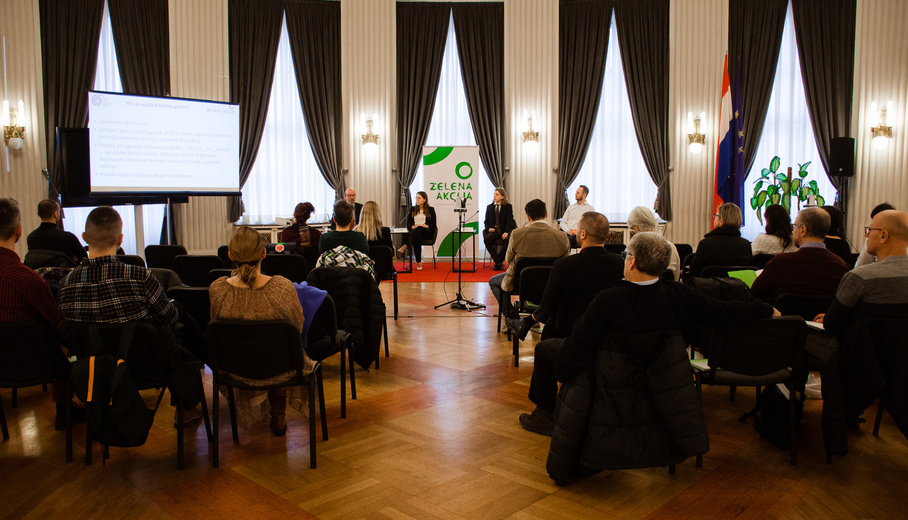
Foto(c) Matej Čelar
A new study presented by Zelena akcija on January 26 at the Journalist Home showed that it is possible to replace fossil gas with renewable sources by 2035, with a total cost recovery basis by 2037.
The analysis of the complete gas phase-out of Croatia includes sectors of electricity production, industry, heating and transport. It shows that the complete modernisation of heating systems is possible in the entire Republic of Croatia by 2035. Heat pumps, renewable energy sources and energy efficiency measures are the most effective for reducing the need and demand for fossil gas in the heating sector.
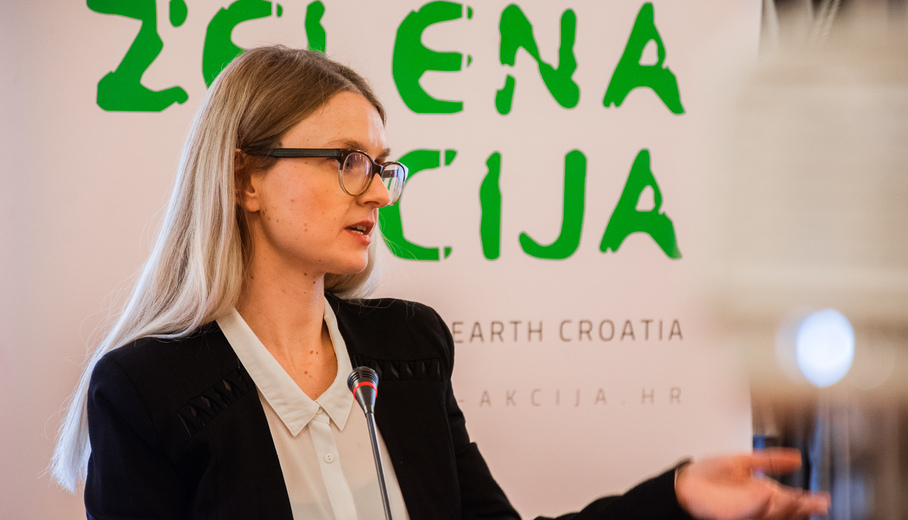
"We need decision-makers with the vision and strategy for an ecologically and socially sustainable transition that does not look back but strives to lead the revolution of renewable energy sources, which are largely in the hands of citizens, not corporations. We invite the Croatian Government and the City of Zagreb to take this study as a recommendation for long-term guidelines for an energy transition based on reducing fossil gas consumption", said Marija Mileta, vice president of Zelena akcija/FoE Croatia, at the opening of the conference.
The Association for Sustainable Development of Energy Systems conducted the study. During the first part of the conference, the study was presented by its authors: Prof. Ph.D. Neven Duić (research leader), Luka Herc, mag.ing.mech. and Ana Kodba, mag.ing.mech.
They emphasised that the accelerated transition enables complete decarbonisation of the power sector by 2035 by abandoning all fossil energy sources - gas, coal and oil derivatives. According to the study, they are replaced primarily by domestic production from variable renewable energy sources with a total capacity of 6488 MW of wind power plants and 6304 MW of photovoltaic power plants. According to the study, the industry sector is also undergoing significant changes by 2035, when gas and coal may be replaced by electricity, renewable hydrogen and hydrogen-based fuels.
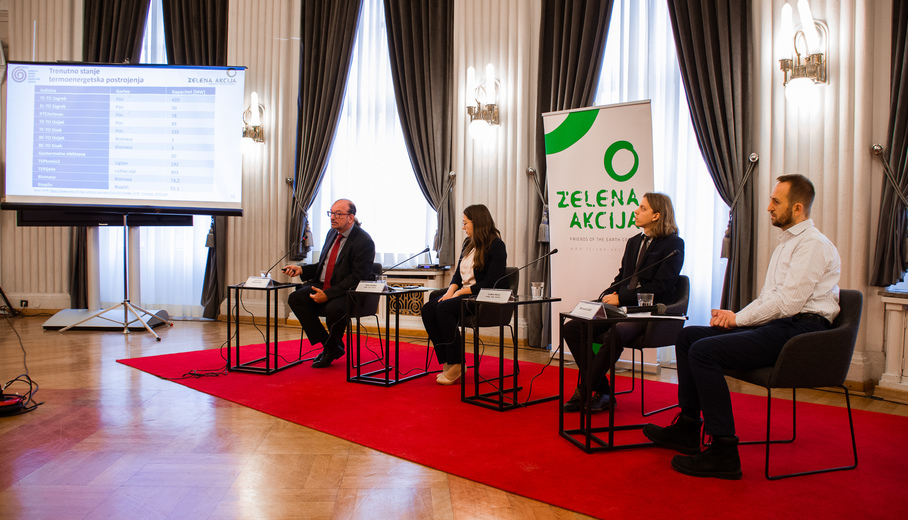
Fossil gas consumption in the household and service sectors was also modeled. "The results showed that the greatest potential for the complete gas phase-out is in the area of Gradska plinara Zagreb d.o.o, which distributes natural gas to users in the areas of the cities Zagreb, Zaprešić, Velika Gorica and the municipalities of Brdovec, Marija Gorica, Pušća and Dubravica", explained Mileta. This distribution area consumes 39 percent of the total gas consumption in households and 41 percent of the total gas consumption in the service sector in the Republic of Croatia.
The analysis showed that there is a high potential for the expansion of the existing heating systems and the construction of new centralised heating systems. Fossil gas is often used for heating in densely populated areas. The results showed that centralised heating systems could replace 45 percent of fossil gas consumption for heating. The approach to full heating depends on the region of application and the type of system, whether it is a centralised heating system or an individual heating system.
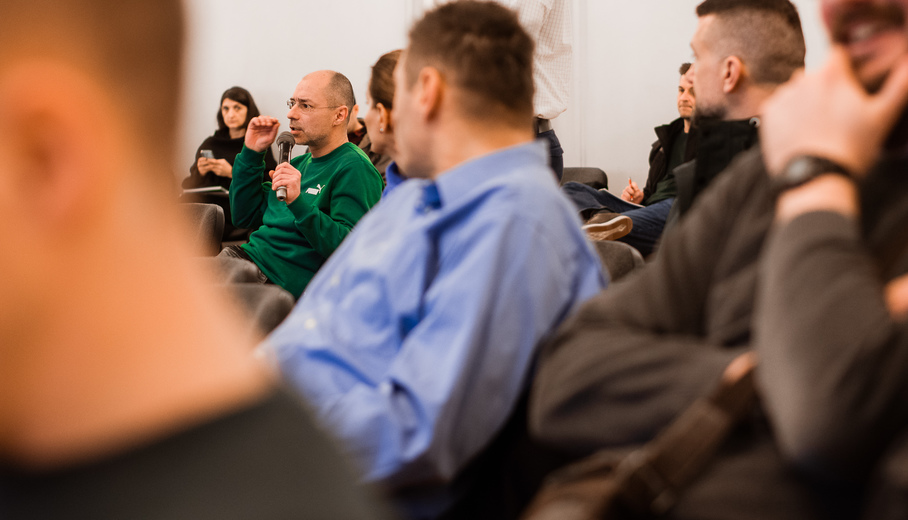
According to the study, the total transition cost until 2035 is 39 billion euros. This refers to installing 5695 MW of wind power plants, 6187 MW of photovoltaic power plants and 120 MW of geothermal power plants. It also includes the installation of 3415 MW of heat pumps. At the same time, heat networks are expanding, and investments are being made in renewable hydrogen production systems.
The panel discussion took place during the second part of the conference. The panelists were Prof. Ph.D. Neven Duić, author of the study, Ivan Ivanković, assistant to the Head of Ecological Sustainability of the City of Zagreb and Marija Mileta, vice president of Zelena akcija.
When asked whether Zagreb will provide projects that would enable the start of the transition within the framework of the new development plan that is being prepared, especially the heating sector, Ivanković said that Zagreb has defined priorities, measures and activities, such as the development of central heating systems, and this strategic document will support that. He also emphasised that this is only a framework and that there is no money or guarantee, but the City plans to apply for EU funding. "Then that is a more serious matter. The list is not yet final, but it will be soon. There is a breakthrough. The city cannot solve some of these directly because many needed actions depend on the state and HEP. But obstacles and problems for such activities should not exist. There is the political will", Ivanković pointed out. He added that heat pumps have more significant potential for Zagreb because geothermal energy is relatively centralised at the state level. However, it will be part of the city's energy mix, although it mainly depends on HEP. "The potential for decarbonisation of the heting industry exists. The technical details are still unclear because it is important to know what the system is like to use geothermal energy effectively. It can be linked to the revitalisation of the network itself. The modernisation of the network will solve part of the preconditions for introducing geothermal energy", concluded Ivanković.
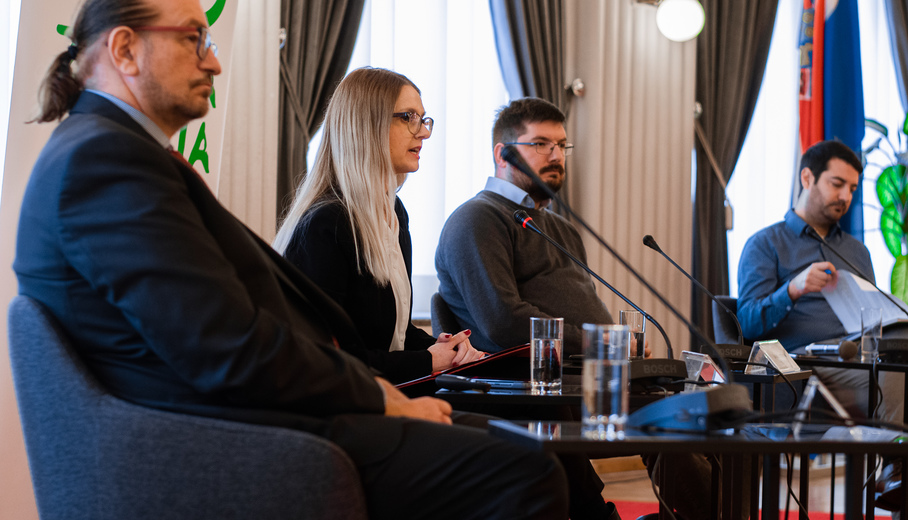
Prof. Duić said that in terms of communication, it makes the most sense to emphasise the complete gas phase-out of the heating sector because that part is the most difficult, and consumers need to be protected. "We continue to subsidise gas, which sends a completely wrong message. There is no good communication about it. People need to understand that gas is ending, and this industry's employees should be allowed to transition. The country is still under the powerful influence of the gas lobby and the EU ", commented Prof. Duić. He also pointed out the main barriers in the matter of community energy, such as the lobby that hindered the development of solar energy, a lot of paperwork, the lack of human resources, the impossibility of trading electricity between energy communities, the legislative framework that is slow in accepting new ideas, and HEP itself that is hindering the process. He also emphasised the positive aspects of community energy. "The poor population greatly benefits from the solar panels on the roofs because it solves the energy problem. If we add a heat pump, they get even more. In this way, they are financially unburdened because they don't pay as much for energy", concluded Prof. Duić.
When asked about expectations of Zelena akcija from decision-makers, Mileta said that many things seem centralised at the state level and that this level is completely closed to civil society. She added that the main question is how to break through that door and democratise and decentralice this system. "Not to switch from one technology to another, but how the transition can benefit citizens, especially those most affected by the energy crisis and climate change. We need a socially and ecologically sustainable transition and a solution to energy poverty", said Mileta. She also raised the question of ambition and courage to implement such a transition by 2035. "Maybe the municipal level will be more ambitious than the national level, maybe that's the way to go, for Zagreb to become a shining example in the decarbonisation of the heating sector. Considering that the area of Zagreb and its surroundings consume the most gas in Croatia, we hope that the City Administration will be open and cooperative to take an ambitious step towards a green and fair transition", Mileta concluded.
The study is currently only available in Croatian, but a translation into English is planned. You can find the study on this link, and see the photo gallery from the conference HERE.
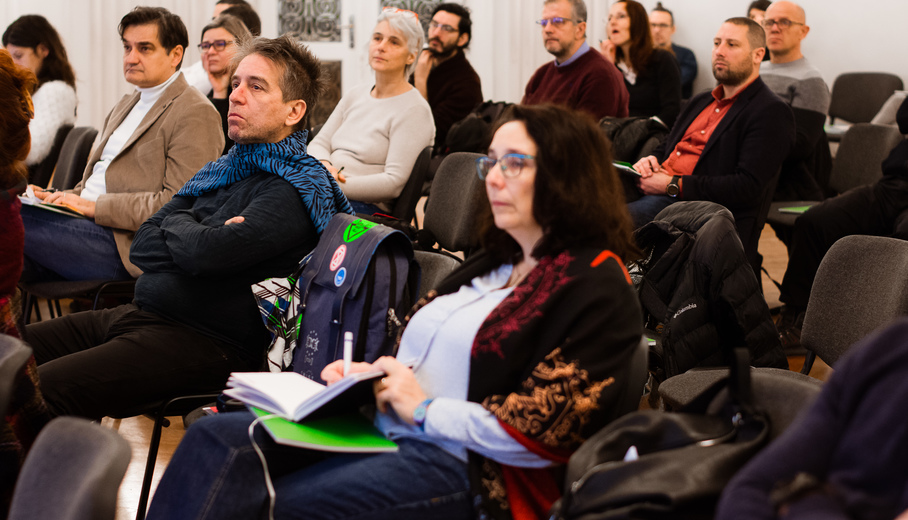
Recording of the entire conference:
Documents
Study of degasification in the Republic of Croatia
You may upload our content in an integral or revised version with the indication of the organisation Zelena akcija/FoE Croatia - under the terms of the Creative Commons Attribution 4.0 International License.
This permission does not apply to stock photos and embedded content of other creators.
Design & development: Slobodna domena Zadruga za otvoreni kod i dizajn